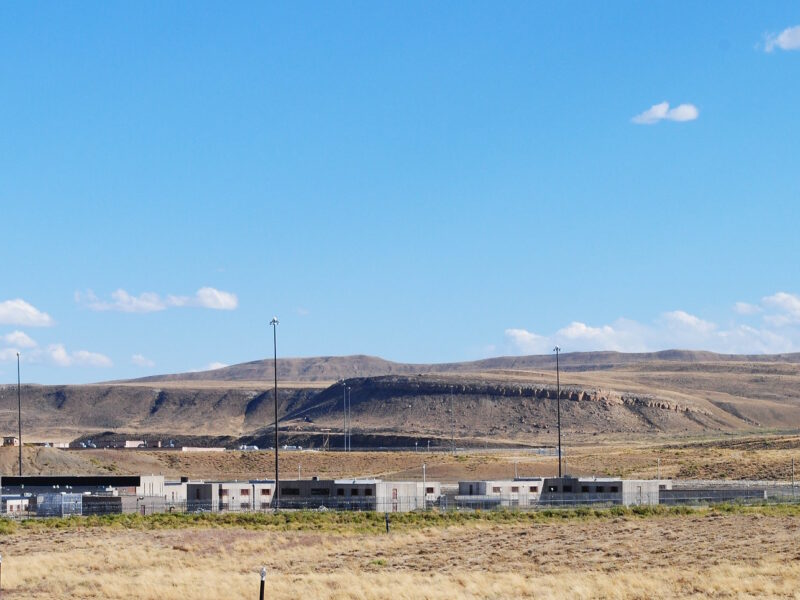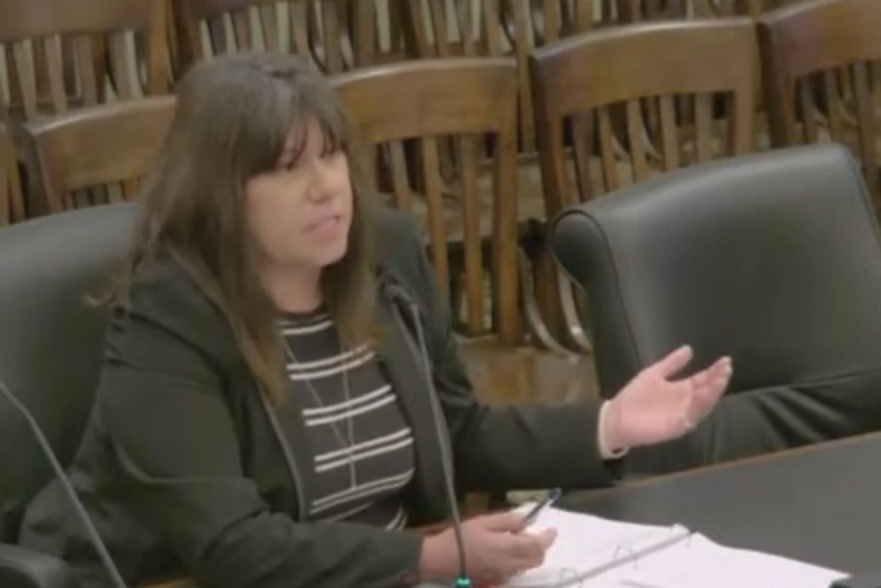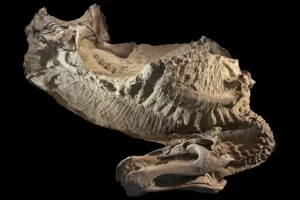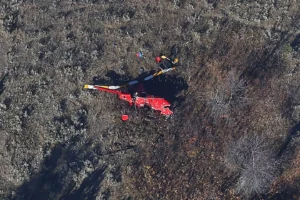Public Defender Requests $500K for Potential Death Penalty Cases
Says the funding is needed to meet constitutional obligations
- Published In: Other News & Features
- Last Updated: Dec 22, 2023

When this photo was taken in 2010, the Wyoming State Penitentiary had one inmate on death row. Today it has none, but the next death penalty case could come at any time. (Courtesy photo from Stuart and Jen Robertson via Flickr)
By CJ Baker
Special to the Wyoming Truth
Wyoming hasn’t carried out an execution since 1992, hasn’t had an inmate on death row since 2014 and has no capital cases pending. But the Office of the State Public Defender says it still needs to ensure it’s ready to handle any of the cases in the future.
“As long as the State of Wyoming has the death penalty as an option in first-degree murder cases, the public defender’s office has to have the money to meet its constitutional requirements,” State Public Defender Diane Lozano told the Joint Appropriations Committee last week.
As part of a proposed $31.1 million budget for the 2025-2026 biennium, Lozano is requesting $500,000 to defend any indigent defendants who are charged with first-degree murder and face “the ultimate punishment.”
Courts have imposed heightened standards for capital cases: The last man Wyoming placed on death row, Dale Wayne Eaton, had his sentence overturned and converted to life in prison after a federal judge found the murderer and rapist received a “fundamentally flawed” defense. Eaton’s appellate attorneys argued his original public defender inappropriately tried to reduce costs.

Lozano’s budget proposal says “substantial monies and resources are required” to defend death penalty cases, and she puts the price tag between $1 million and $2.5 million per case.
“… when a prosecutor even mentions the possibility of the death penalty, I have to start investigating it as if it’s a death penalty case,” she said.
Striking a plea bargain
Natrona County District Attorney Dan Itzen considered pursuing the death penalty for a double homicide in 2022, which was committed by a felon who’d escaped from a work release program. However, Lozano said the prosecutor gave her office the opportunity to conduct a mitigation investigation.
The office spent over $200,000 while working with the Community Resource Initiative of California to dig into Luke Thomas Young’s life story and family history, going back three generations. They found the 26-year-old had suffered physical and sexual trauma, abuse and neglect as a child, according to Oil City News, and the prosecution and defense ultimately stipulated to a life sentence.
“We were able to get that accomplished, and at $202,000, at [a] great discount to the capital cases that I’ve been involved in,” Lozano said.
It was one of two cases that drew from the capital account in the last fiscal year, she said, at a total cost of $255,288.86. Lozano called the mitigation work “a bargain,” but also “what the constitution requires us to do so.”
Under American Bar Association guidelines, defense attorneys who handle capital cases must receive specialized instruction every two years, and Lozano said that costs her office between $50,000 and $80,000 annually.
The prosecutors who decide whether to pursue death don’t face the same requirements and generally don’t receive as much training.
Equal footing
At a Nov. 7 Joint Judiciary Committee meeting, Rep. Ember Oakley (R-Riverton), who serves as a deputy prosecutor in Fremont County, suggested funding for the opposing sides should be equal. Oakley noted the death penalty training for public defenders while “we don’t have anything specifically set up for prosecution.”
She made the comments as the panel discussed the potential of a new association that would organize trainings for Wyoming prosecutors and lobby the Legislature on their behalf.

Wyoming Supreme Court Justice Keith Kautz has been assisting with the effort, saying there are a number of young prosecutors with “very little experience and very few opportunities for education.”
It’s important that the state’s prosecutors and public defenders are both “as high quality as they can be,” Kautz said, adding that prosecutors “are my lawyers, they’re your lawyers, they represent all of us in court.”
But the justice dismissed the idea that the public defender’s office is flush with funds for training.
“I don’t want to be here saying Ms. Lozano has a ton of money for this,” Kautz said. “I think she’s short-handed and short-funded all the way around and is doing a marvelous job of keeping the boat afloat.”
An impossible prediction
The public defender’s budget request describes the office as “in crisis,” with “burgeoning caseloads and attorney turnover.” As of Dec. 13, it had about 110 full- and part-time attorneys, legal assistants and investigators handling 6,021 cases, Lozano said.
Public defenders only represent criminal defendants who lack the money to hire their own attorney and are facing potential jail time. But the office says over 90% of the defendants charged with misdemeanors, felonies and juvenile delinquencies fall into that category.
“As it goes, poor people tend to be the ones that are being arrested and charged with crimes,” Lozano said.
She said it feels like “crime has gotten more violent” since the COVID-19 pandemic, with lots of shootings and strangulations, plus many clients with severe mentally illness. Still, the office’s overall caseload has dropped.
“I would tell you that today, [for] maybe the first time I’ve been before this committee, that I don’t feel like we have a couple forest fires to put out,” Lozano said.
While the public defender is requesting $500,000, the budget proposal notes the actual amount needed for capital cases “is impossible to predict,” as it hinges on crimes, defendants and decisions made by prosecutors.
The Wyoming House passed a bill in 2019 that would have repealed the state’s death penalty, with supporters noting it would save the state money. However, both that measure and a similar 2021 attempt failed in the Senate after running into resistance from prosecutors and others. That has left capital punishment — and the ongoing expenses — on the state’s books.
The Legislature will take up the state budget in February.













